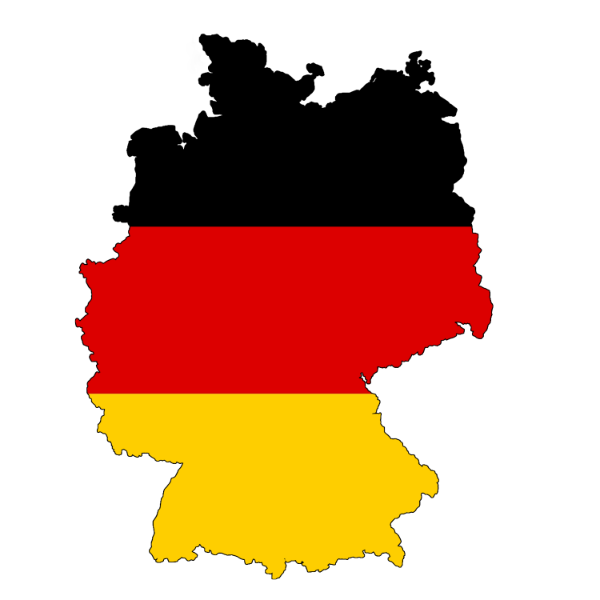You do not not speak German? Thats okay because we offer all our services in English as well. We have experience explaining the legal situation in Germany to customers from other countries. Especially for customers from common law legal systems the German legal system is often difficult to comprehend.
Dr. Cordt worked for several months at the employment court in Auckland (New Zealand). He as well as Franziska Roth both are used to speaking legal English on a daily basis.
We are updating our website successively. Our goal is a complete translation into English. In the meantime you can find the most relevant information in English below.
We are specialised in Employment Law
Due to our specialization, we offer you sound and professional advice and representation in all areas of employment law.
Specialisation
As our client you benefit by specializing in a single area of law. Our goal is to offer you services in an area where we have experience and a profound knowledge. Especially in employment law, it is very important to have very good legal knowledge and very good negotiating skills. You can benefit from our activities in international companies and our training in negotiation management.
Clients
At first, it may seem strange that we both represent employers and employees. In employment law it is particularly important to know the interests and strategies of both, employers and employees. Most cases demand a solution that both parties can accept. As we now the opposing positions and interests we are able to find the best solution for you.
Consultation
Our goal is to advise you as individually as possible so that you can make the best economic and legal decision. We therefore take the time to discuss your situation in detail with you and explain all the „unique“ German employment law rules. Whether you like to meet us in person or on the phone/videoconference – that’s up to you.

Get in touch
You can reach us from monday till friday between 9 am and 7 pm. In order to prepare us for your call you can send us all relevant documents in advance via mail, email or contact form.
Please note that there is always the risk third parties may become aware of the content. We gladly provide you with access to our servers to upload sensitive data directly and encrypted to our server.
We will call you as soon as possible after viewing your documents.
+49 (0) 6452 9394767
info@kanzlei-cordt.de

Wherever you are
Thanks to modern technology, long distances can easily be overcome. You can reach us by mail, phone, video conference, etc. We are used to communicate over long distances with our clients. Please note that we only offer our services within the German legal system and not for foreign legal systems.
Locations
We have to locations in Hesse. For most clients our location just a 5 minutes drive away from Terminal 1 at Frankfurt Airport is the most convenient location if you prefer a face-to-face meeting.

Our lawyers
Dr. Markus Cordt, MBA
I studied law at Johann Wolfgang Goethe-University in Frankfurt am Main and at Johannes Gutenberg-University in Mainz. I specialised in German and European Employment Law. During my mandatory legal training I worked for several months at the Employment Court in Auckland (New Zealand). Following this, I did my doctorate in Employment Law at Philipps-University in Marburg while working at a local law firm. After finishing my doctorate, I worked for Deutsche Lufthansa AG while starting to build my own law firm.


Franziska Roth
I studied Law at Georg-August-University in Göttingen and Johannes Gutenberg-University in Mainz. I specialized in conflicts of law and Employment Law.
Following my mandatory legal training I worked for PWC where I advised international clients. Currently my main responsibility is advising a large international company.
Andreas Stubbe
I studied Law at at Johannes Gutenberg-University in Mainz. Like Franziska and Markus, I also specialised in Employment Law during my studies. Following my mandatory legal training, I started working as an in house consultant for a temporary employment agency.

Works Council, Spokesman Committee & Unions
In Germany we have different bodies with different rights and responsibilities. It is difficult not getting confused by the different roles of these bodies.
Works Council
The Works Council is a very powerful body. Unlike in other countries with similar bodies it is not only a formal process of information. The Works Council has numerous rights – in many cases even the right of codetermination. This can complicate implementations of management decisions especially when the management and the Works Council have opposing interests.
Dealing with Works Council is a very sensitive matter. The management has to work together with the members of the Works Council – usually for a long period of time. The employer may not terminate the employment relationship with a member of the Works Council. Therefore all negotiations have to be conducted in good faith.
The Works Council represent all employees exempt executive employees.
Spokesman Committee
While the Works Council represents tariff and exempt tariff employees, the Spokesman Committee represents the executive employees.
Dealing with the Spokesman Committee is usually much easier than with the Works Council. The Spokesman Committee consists only of executive employees. Usually these employees do not challenge management decisions as much as the Works Council does.
The Spokesman Committee has only a right of information and no right of codetermination.
Unions
Although the coverage of workers by collective agreements came down in the last decade more than half of all workers (depending on the branch up to 100 %) are still covered by collective agreements.
Whenever an collective agreement exists (or even usually exists) the Works Council may not negotiate with the employer about anything that is usually covered by collective agreements.
In daily business there is usually no need to negotiate with unions.
Without approval from the union, employees may not waive any rights given by a collective agreement.
Only unions can call a strike in Germany.